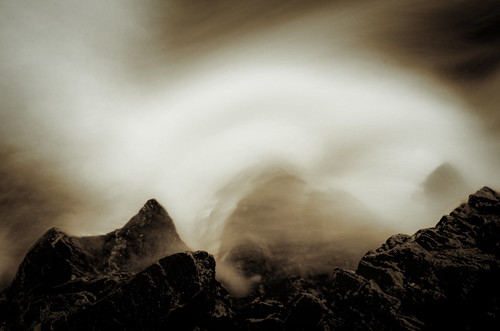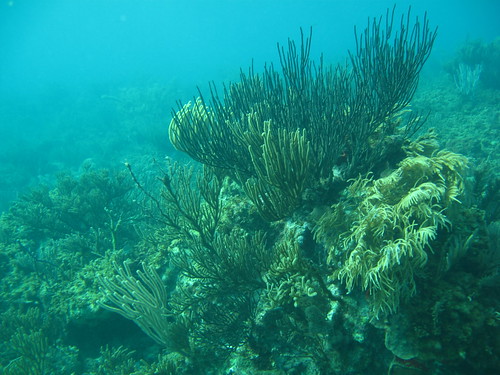by Scarlett R. Algee
He swims out to the reef and waits for her, because hell is empty and all the devils are here and he has not yet learned to be afraid.
She comes: bare and white, hair and eyes and skin, flat feet and webbed fingers and thin mouth stretched in a too-toothed smile—
(the sky is lead and the sea is black and she is white save her gills and more secret places, fringed-rich-red, pulsing, waiting)
—and her mouth is too wide for proper kissing but he does it anyway, warm flesh to cold, his hands slotted into hers, short nails pulling at the membranes between her fingers.

She tastes of rain, of salt, of blood: and he has not learned to be afraid—
(he will be found in three days’ time, neck broken in three places, bitten through to porcelain shards of spine)
—and when she laughs quicksilvery he tips his head back, baring his throat, stars wheeling briefly overhead in his vision before blanking out, and there is hunger raw in the rows of her teeth but something in her eyes like kindness—
And he is not afraid, because hell is empty.
Originally appeared in Cthulhu Haiku II (2013) by Popcorn Press.
 Scarlett R. Algee has most recently contributed to the anthologies A Shadow of Autumn, Zen of the Dead, and The Haunting of Lake Manor Hotel, as well as to Body Parts Magazine. Previously a teacher and librarian, she lives in the wilds of Tennessee with a Hound of Tindalos cleverly disguised as a beagle, and blogs at scarlettralgee.wordpress.com.
Scarlett R. Algee has most recently contributed to the anthologies A Shadow of Autumn, Zen of the Dead, and The Haunting of Lake Manor Hotel, as well as to Body Parts Magazine. Previously a teacher and librarian, she lives in the wilds of Tennessee with a Hound of Tindalos cleverly disguised as a beagle, and blogs at scarlettralgee.wordpress.com.

